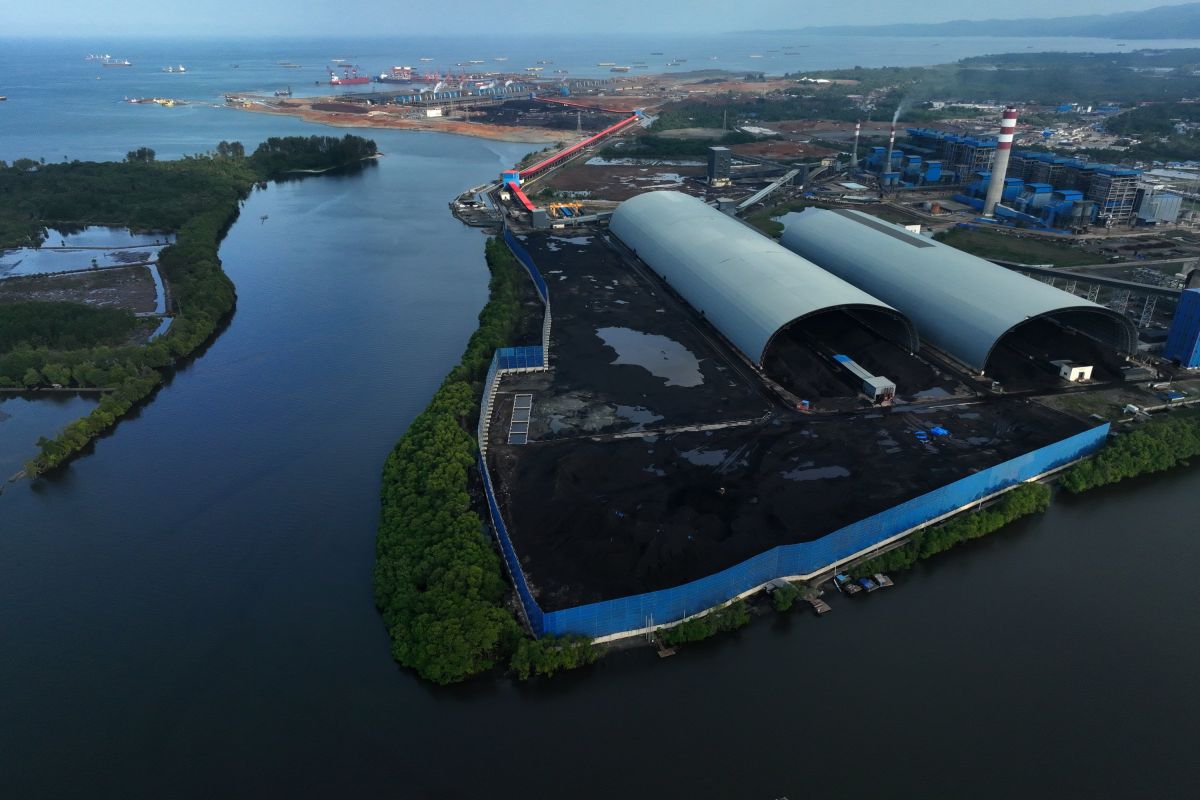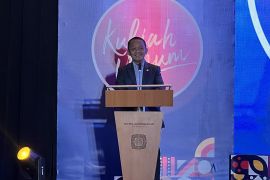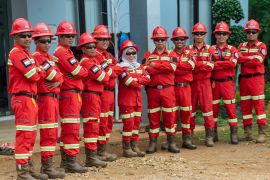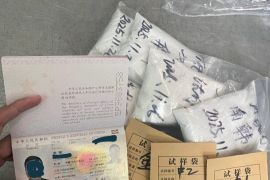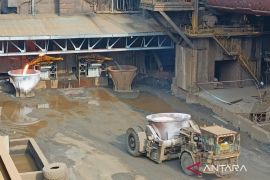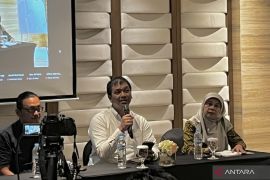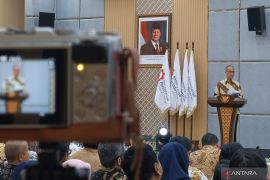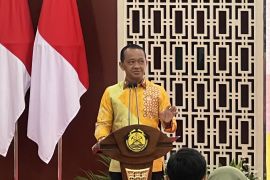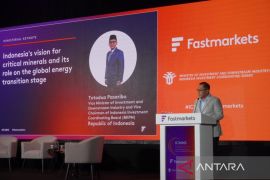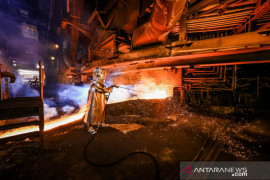From dawn to dusk, mining products are woven into everyday life — constant reminders of what is extracted from deep within the Earth.
"We live in a paradox," said Jalal, co-founder of A+ CSR Indonesia, during a recent journalism class.
While global efforts toward energy transition — such as solar power, battery storage systems, and electric vehicles — are praised as climate solutions, they are heavily dependent on mining, especially for minerals like nickel.
But mining, particularly in Indonesia, often faces sharp criticism for its environmental toll: water pollution, deforestation, and emissions from coal-fired power plants used in extraction.
"We can't survive the climate crisis without mining," Jalal said. "But the way mining contributes to climate change and forest loss is also a serious concern."
He believes the mining sector’s image could improve if companies actively raise public awareness and adopt strong environmental, social, and governance (ESG) standards.
ESG frameworks, he added, help mitigate mining’s environmental footprint and can serve as a protective buffer for surrounding ecosystems.
Still, despite these frameworks, public attention tends to focus on the negative impacts of mining — and Indonesia is no exception.
Indonesia battles ‘dirty nickel’ reputation
Indonesia, one of the world’s largest nickel producers, has come under international scrutiny, particularly in relation to its nickel downstreaming program. Much of the attention has centered on the Weda Bay Industrial Estate in North Maluku.
Western media and environmental groups have labeled Indonesian nickel “dirty” — a term that implies poor environmental practices.
Ironically, one of the main investors in PT Weda Bay Nickel is the French mining group Eramet, which holds a 43 percent stake in the joint venture with China’s Tsingshan Group (57 percent).
The venture, Strand Minerals Pte Ltd, owns 90 percent of PT Weda Bay Nickel, with the remaining 10 percent held by Indonesia’s state-owned miner, PT ANTAM.
Production at Weda Bay began in 2019, with an annual output of 300,000 tons of nickel ferroalloy.
Jerome Baudelet, CEO of Eramet Indonesia, has publicly pushed back against the "dirty nickel" narrative, calling it a product of fear over Indonesia’s rapid industry growth.
“In 2014, Indonesia supplied just eight percent of the global nickel market,” Baudelet said. “By 2019, that rose to 33 percent, and by 2024, we reached 61 percent of global supply.”
That explosive growth has shaken the global nickel industry — particularly in the West — as Indonesia's product range diversified to include NPI, MHP, NiSO, and refined nickel metals.
Baudelet pointed to rising global demand for nickel, projected to increase by 176 percent between 2025 and 2035. Around 30 percent of that will be driven by batteries, a sector in which Indonesia is poised to dominate.
“So, when they call our nickel cheap and dirty, it’s because they feel threatened,” he added.
Reform and regulation at home
Baudelet acknowledged that mining always leaves some environmental impact and that each country has different operational standards.
However, he emphasized that many Indonesian companies are adopting some of the world's best practices.
He also applauded the Indonesian government’s recent moves to eliminate illegal mining — a major contributor to environmental degradation.
In a national address on the eve of Indonesia’s 80th Independence Day, President Prabowo Subianto pledged to recover Rp300 trillion in state wealth by shutting down 1,063 illegal mining sites across the country.
This commitment led to the formation of the Forest Area Regulation Task Force (Satgas PKH), which has identified 4.2 million hectares of forest land exploited by illegal miners.
Baudelet welcomed these reforms and called on all players in the sector to embrace ESG compliance and strive toward responsible mining practices.
Responsible mining over sustainable mining
Jalal questioned the use of the term “sustainable mining,” preferring “responsible mining,” which he defines as mining that actively considers its social, environmental, and economic impact.
Baudelet echoed this view, highlighting Eramet’s environmental goals: cutting emissions by 40 percent by 2035 and achieving carbon neutrality by 2050.
While replacing coal-fired power plants remains a challenge, Eramet launched its decarbonization journey in 2024 by deploying electric dump trucks at Weda Bay.
The company is also committed to post-mining land rehabilitation, revegetation, and ecosystem restoration. Equally, social responsibility plays a key role in its operations.
Through the Kitong Bisa Foundation, Eramet funds scholarships for students from Eastern Indonesia. Economically, its LAKSMI program supports ultra-micro women entrepreneurs in Jakarta and Ternate, while also creating local employment in mining regions.
From carbon reduction to social programs, Eramet’s steps fall under its “Act for Positive Mining” plan, which is built on three pillars: being a trusted partner for nature, caring for people, and transforming the value chain.
This strategy is further supported by “Eramet Beyond,” the company’s commitment to generating long-term economic and social benefits in its operational areas — including Indonesia, where it has worked since 2006.
A call for accountability
Jalal noted that the “dirty nickel” discourse has pressured companies to pay closer attention to ESG compliance — a positive development.
He stressed the role of watchdogs — the media, academics, and NGOs — in monitoring mining practices and pushing companies toward responsible change.
That change, Jalal said, should ensure that the long-standing costs of extracting wealth from beneath the Earth are ultimately outweighed by the long-term benefits to people and the planet.
Related news: Indonesia pushes nickel-based batteries in EV production
Related news: Ministry investigates potential mining damage in Raja Ampat
Editor: Rahmad Nasution
Copyright © ANTARA 2025
